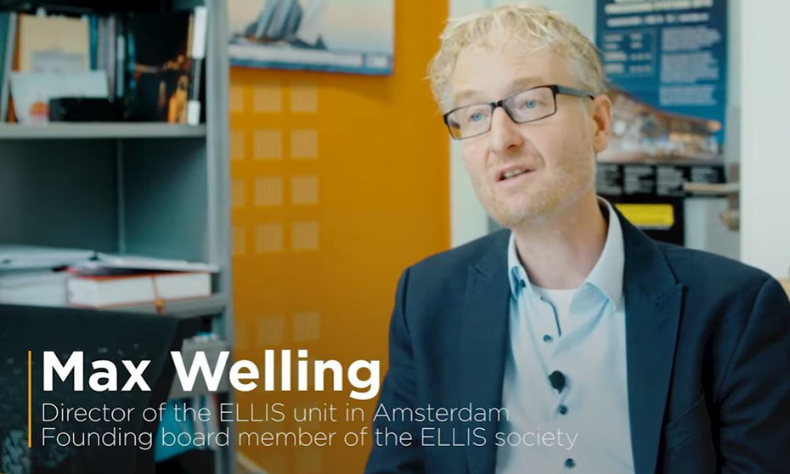
Solving the climate problem with machine learning
‘We are heading towards a wall at a tremendous speed, and we haven’t yet hit the brakes’, Max Welling says. He’s referring to climate change. ‘It is highly likely that the earth will be four degrees warmer by the end of this century.’ Max Welling is a professor of Machine Learning at the University of Amsterdam and head of Microsoft Research’s AI4Science programme.
Since 2021, Max Welling has worked for Microsoft Research’s AI4Science research programme, which has an office in Amsterdam. ‘Many of the things we’re working on here should eventually help to solve the climate problem. Universities and the business sector need each other.’
He gives an example. ‘At the moment we don’t know exactly how fast the earth’s temperature is rising. In the best-case scenario, it could be up to 1.5 degrees warmer by the end of this century. In the worst-case scenario, the temperature could increase by up to 5 degrees. We’re working on models that can predict global warming so that policies can be made based on this information. Machine Learning plays a major role in this.’
"If you really want to make an impact, you need the business sector."
Like we do as humans
Machine Learning is a specific component of Artificial Intelligence. ‘When building an AI system, you program an algorithm that does something. For example, navigating a route in the case of self-driving cars. With Machine Learning, our aim is to enable the system to program itself. It does that through observations, much like we do as humans. We aren’t pre-programmed based on rules either, but instead are able to learn new things through experiences and observations. Machine Learning develops self-learning algorithms.’
Heavy investments in Machine Learning
Tech giants like Microsoft are investing heavily in Machine Learning. Why are they doing that? ‘For a very simple reason: because it serves an important social purpose and because there is profit to be gained in the long term’, Welling says. He cites the removal of CO2 from the air as an example.
‘That is a chemical process in which molecules bind to the CO2 and release it at a different temperature. Machine Learning helps to identify materials with the right properties to remove CO2 from the air. If fines are imposed that make it more expensive to emit CO2 and cheaper to remove it, more and more companies will start doing this. Microsoft is already preparing for this scenario by investing in such efforts now. The company has also announced that by 2050, it wants to remove all the CO2 it has emitted into the air thus far.’
Solving the climate problem
According to Welling, the fact that a major player like Microsoft sees a profit model in solving the climate problem is definitely good news. ‘If you really want to make an impact, you need the business sector.’ However, this isn’t just because companies are often the financial backers that make it possible to set up research centres. ‘Many of the interesting problems we end up trying to solve as scientists are put forward by businesses.’ He therefore welcomes the fact that businesses and universities are collaborating more and more. ‘When it comes to AI, we both have the same goal: finding the best algorithm.’
About Max Welling
- Professor of Machine Learning at the University of Amsterdam and head of Microsoft Research’s AI4Science programme;
- Fellow at the Canadian Institute for Advanced Research (CIFAR) and the European Lab for Learning and Intelligent Systems (ELLIS), where he also serves on the founding board.
- More information / contact on Max Welling's personal page on the UvA site.
